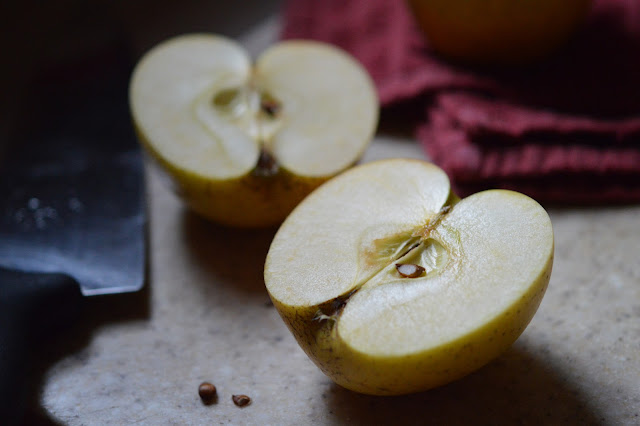We live in an age where grains are constantly abused. We bleach them, strip them of their nutrients, we even "enrich" them by taking away their natural nutritional benefits and replacing them with shelf-stable chemical "nutrients." As a result of this foul treatment, many people have gone gluten-free, or grain-free because they want to avoid the disadvantageous effects that wreck our health. So how did we get to this point? How did we go from deeming bread the "staff of life" to chanting "the whiter the bread, the quicker you're dead?" I'm no nutritionist, but I believe the way grains are prepared dramatically impacts the effects they will impart to your health.
So where do we go from here? What makes a grain "properly prepared?" In her wonderful book, Nourishing Traditions, Sally Fallon explains that ancient cultures who ate grains as a staple in their diet, properly prepared the grains by first soaking, sprouting, or fermenting the grains. The Irish did it with their oatmeal, the French with their sourdough, the Latin-Americans with their corn tortillas. Why go to all of this trouble you ask? Most grains, particularly wheat, contain high levels of phytic acid, which does more harm than good to our bodies. Not only can it slow down your metabolism, but it also causes mineral deficiencies, bone loss, tooth decay, and other maladies when consumed in excess. The good news is, phytase, the enzyme responsible for breaking down the levels of phytic acid, is activated when grains are soaked in an acidic medium, such as yogurt, buttermilk, whey, lemon juice or vinegar. In addition, the mineral content is actually increased by soaking, making grains more beneficial to our bodies. Sounds pretty good, right?
With all of that being said, I am excited to share this series of soaked-grain recipes with you! If you have ever baked using the soaking method, you know that it can be a little tricky at first. The first muffins I made with soaked flour were a bit dense, to say the least. But with practice, you learn what works well using the soaking method and what does not. My hope is that I can make most of the mistakes for you and provide you with recipes that not only maximize optimum nutrition, but also taste great! Let's get soaking!
Baked Oatmeal Cakes
Makes 12
3 cups old-fashioned oats
1 cup whole-milk yogurt
1/3 cup warm water
1/2 cup maple syrup
1/2 cup melted butter
2 eggs
1 1/2 tsp. sea salt
1 tsp. cinnamon
2 tsp. baking powder
In a large bowl, mix oats, yogurt, and water together and let sit covered in a warm place overnight. In the morning, blend the butter, maple syrup, eggs, salt, cinnamon, and baking powder together. With a fork, loosen the oat mixture; add the maple mixture and mix until well blended. Grease a 12-cup muffin pan and fill each cup 2/3 full. Bake at 350 degrees for 25-30 minutes. Let cool in pan for 20 minutes, then remove and let cool on rack. Store any leftover cakes in the refrigerator.
Blackberry Sauce
2 cups fresh or thawed frozen blackberries
2 tsp. lemon juice
2-4 Tbsp. maple syrup (slightly more or less depending on your taste)
1/2 tsp. arrowroot or cornstarch dissolved in a tsp. of warm water
pinch of sea salt
In a medium saucepan, combine berries, juice, and syrup over medium heat. Once juices have released from the berries, after 10 or so minutes, add the arrowroot mixture and salt. Let cook until slightly thickened, 5-10 minutes more.
Happy soaking!
Love,
Angie


.JPG)






















.JPG)